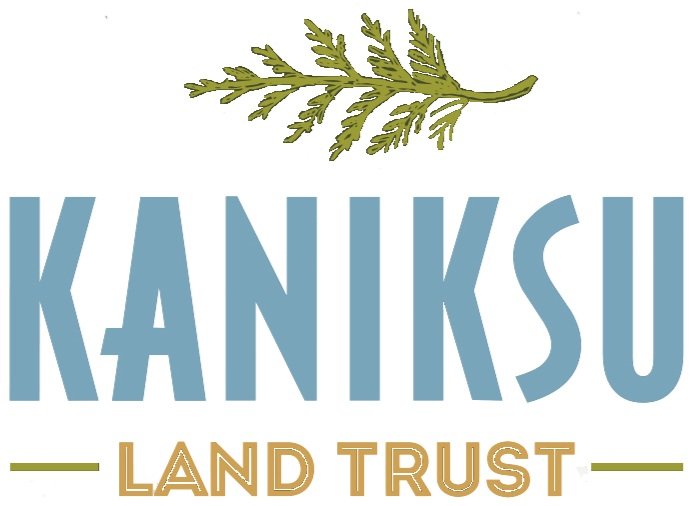It Takes a Village to ReWild a Schoolyard
Community Comes Together for Kootenai Elementary School Rewilding Project
Ground has officially broken at Kootenai Elementary School as part of an ambitious project to rewild the play yards of three local elementary schools. Kaniksu Land Trust (KLT) in collaboration with Lake Pend Oreille School District (LPOSD) worked with administration, faculty and students at each school with guidance from Mithun, an architecture and planning firm from Seattle, to conceptualize a space that would reintroduce natural landscapes onto school grounds. With access to nature right outside the classroom door, teachers can utilize one of the area's most treasured educational resources - nature.
The project is primarily supported by people from the local and regional area including, the Equinox Foundation, Kinnikinnick Native Plant Society, Selkirk Association of Realtors, Stimson-Miller Foundation, United Way North Idaho, and numerous community donors.
Local contractor Mike McCoy, leading the trail construction, emphasized the project's community spirit: “The community is really involved; from the neighbor who delivered a load of base rock on his lunch break to Arrow Construction, a nearby small business, who gave us a deep discount on the geofabric for the trail.”
KLT’s Executive Director Katie Cox explained, “At this ReWild project, we have to help make the wilderness more accessible for teachers and students alike. In the past teachers would shy away from this space because exploration always ended in tons of soaking wet shoes and cold toes. Our design challenge was to keep it wild but also a welcome place for exploration and learning without the mess ending up back in the classrooms."
The Kootenai project includes six outdoor classrooms, a bird blind, and an exploratory playmound, with native plant identification signs provided by the Kinnikinnick Native Plant Society. Volunteers have been integral, building boardwalks, raking rocks, and hauling materials. "I wanted to volunteer because I wanted to see it firsthand,” explained volunteer Susie Kubiak. “I thought it was just a corner of the playground. I was surprised to see how extensive it is!"
LPOSD is not the first to implement on-site nature education landscapes. Educational community gardens, urban wildlife habitats, and playground nature-scapes are popping up in communities worldwide as the academic and health benefits of nature education become more widely known.
National studies compiled by University of Wisconsin - Stevens Point cite higher test scores, stronger civic engagement, decreased symptoms of ADHD, improved decision-making ability, and lower stress levels in both students and teachers, among other emotional, behavioral and intellectual development benefits resulting from nature-immersive education. The report states that “outdoor education effectively employs a greater range of children’s intelligences.”
“Over the past 8 years that KLT has been doing nature education outreach at local schools, we’ve heard from teachers that outdoor learning days result in higher attendance, fewer discipline issues, and a higher capacity for group learning,” said Cox.
As the project progresses toward completion before the fall term, anticipation is building among residents and school staff alike. McCoy reports that "the hard part" of the trail work is behind him and the trail is about halfway finished. “I think the kids are going to be really excited. Already, the community is curious to see how it turns out,” he said.
Stay updated on Kootenai Elementary School's rewilding project and others in the queue, along with KLT's broader educational initiatives, by subscribing to The Dirt, KLT’s monthly eNews.



